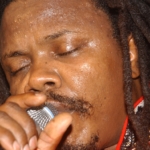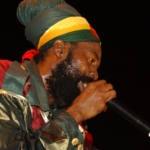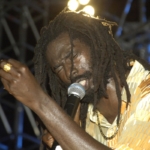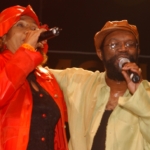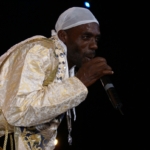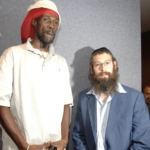
The year was 1983. The song Karma Chameleon was heating up the charts and everyone in earshot of a radio sang along with the infectious chorus performed by London’s own Boy George of the unique and alternative band Culture Club.
In the political adolescence of my youth I sang along to many of the hits delivered by Culture Club. However, it wasn’t until I matured (politically and physically) that I realized I was appreciating one of the countless examples of Reggae’s influences and offsprings.
That’s right. Do the math before you invariably point out that Boy George couldn’t possibly be adopting a Reggae consciousness. After all, his sexual orientation is diametrically opposed to that usually ordained by Reggae’s most popular and renowned statesmen.
In case you haven’t worked out the equation inferred by my above hypothesis here is the formula:
3.Finally, and most importantly, listen to their music. A casual sampling of say, ‘Do You Really Want to Hurt Me’ another of their breakout hits, conjures images of the most authentic of dancehall jams back in the day, complete with the decibel defying sound coming from the speakers of the local powerhouse deejay. Observe the lucky local ruffians and dreads with their hands delectably nestled in the small of a woman’s back. Their feet are cushioned in the comfort of a fresh pair Clarks’ Wallabies as the two perform the intimate dance sequence suggesting the promise, or affirmation, of existing affection.
And I’m sure I don’t have to mention the fashion in which Boy George wore his hair… You know like the dread who was the drummer in the band? Good, because I’d much rather point out that guitar legend Eric Clapton experienced one of his biggest hits with his remake of Bob Marley’s I shot the Sheriff.
I would also point out one of my more favorite examples of cross genre influences by sighting Stevie Wonder’s song Master Blaster Jamming. An out and out reggae song in which he actually pays homage to Bob Marley by mentioning him and pointing out Zimbabwe’s independence in his lyrics. A feat bravely achieved by him considering that the kinder gentler image of Motown’s line up and the rest of the music world seemed to be deterred from even mentioning Africa in any of their music. This taboo was made glaringly apparent on the Ojay’s smash ‘Love Train’ where they speak of people all over the world joining hands. It is however peculiar when we notice that on their fantasy train ride they declare that the first stop will be England!
A far cry from Marley’s Africa Unite mantra.
In my opinion though, the effect that Reggae has had on the world is most poignant when considering Africa’s place in the modern world. Africa is a bone of contention for all who invoke her name. The word is almost always qualified with some comment of her troubles, highlighting her despair in recent world history.
Reggae music has afforded the image of Africa a much needed lift by reviewing the actual events — in opposition to the existing propaganda which insists that she never stood in the first place — that lead to her collapse. Without entering a political debate and participating in a fact hurling contest with naysayers, science and its institutions of propaganda has had to admit that mankind’s origins lie firmly in Africa.
Regarding the evolution of the Rastafarian movement, Horace Campbell points out in his seminal work that “Rasta shows that the faith of the Rastafarian was endowed in the music of Reggae.” Also that what the Rastas consequently produced through Reggae’s infectious groove appeal has, in a subtle way, forced listeners to consider Africa in a more scientific and objective light. s painful as it can be, one who embraces the Reggae Conscience must in some form or fashion acknowledge the wrongs perpetrated in Africa and, likewise (albeit sometimes spiritually), help her struggle for her independence, re-construction and redemption.
I contend that Reggae’s most lasting influence on the world is through her championing of Africa. Africa is the deciding factor in the entire world. Particularly because her riches, she has been afforded significant influence on the global stage with regard to the causes of a number of the world’s wars. It is no wonder that the imperial powers are in constant quest of finding more, and maintaining their grip on her mineral resources, which keep the modern world afloat and forward moving.
Where political agencies fail to affect progressive change in Africa and subsequently the world, the persuasive encouragement of Reggae music massages public opinion and crosses political barriers, putting pressure on various world officials to at least feign interest in Africa and the healing of her populace. In this way, Africa and her plight can produced a knee-jerk reaction by various strata in the human family.
The issues contained within the African dynamic serve as the crystallizing force for all humanity in the rights would seek to address, thereby practically becoming the poster image for suffering and a desperate need for change.
Considering all the bands that have adopted the Reggae politic since its inception, as well as the use of music in addressing societal ills and desires, Reggae music has been a well of inspiration for all who have embraced her. And given music’s position as the world’s international language, what other platform than Reggae should one use to facilitate a dialog among nations. One of peace love and Irie Vibes, hence having a positive effect on this world that we currently share or, as I would rather say, embrace.

